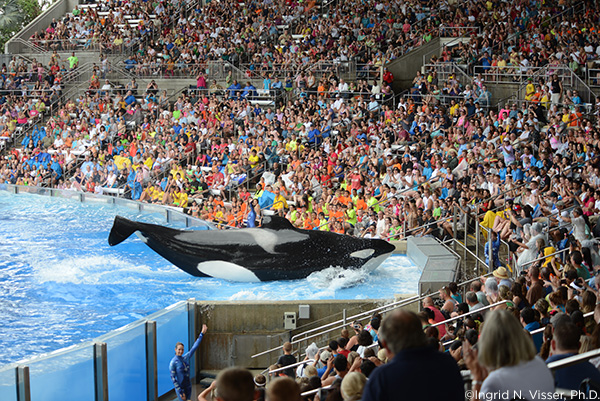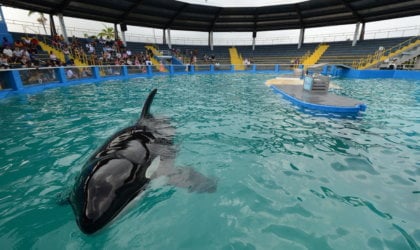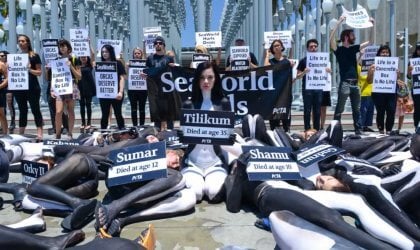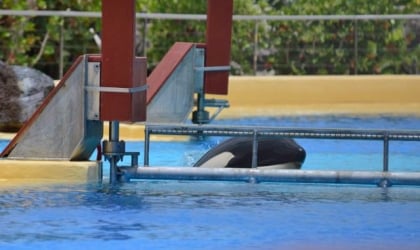On the 30th anniversary of the capture of Tilikum—the orca who lashed out and killed trainer Dawn Brancheau at SeaWorld in Orlando—PETA submitted a formal complaint urging Florida State Attorney Jeffery Ashton to investigate the park and to pursue felony charges for alleged violations of Florida’s anti-cruelty statute. As PETA points out in its letter, Florida law prohibits intentionally causing excessive or repeated unnecessary suffering—and SeaWorld knowingly subjects Tilikum to the constant stress, frustration, conflict, and injury inherent in keeping a far-ranging, highly social top predator in captivity.
“Tilikum’s sad, decades-long story of deprivation and aggression reveals what happens when sensitive, intelligent marine mammals are locked up in SeaWorld’s concrete tanks,” says PETA Foundation Director of Captive Animal Law Enforcement Delcianna Winders. “The state attorney has a duty to enforce Florida’s laws—and that includes the anti-cruelty statute that PETA believes SeaWorld flagrantly disregards.”
Leading orca researchers agree that captivity is devastating to these mammals, who, in the wild, share intricate relationships with one another, swim as far as 100 miles every day, and work cooperatively to find food. Tilikum was rounded up and taken from his family in the wild on November 9, 1983, and ever since, he—like the other orcas at SeaWorld—has been denied the opportunity to engage in any of these natural behaviors. This constant deprivation is very stressful and takes a toll on the orcas, who frequently display abnormal behavior that is never seen in the wild, such as gnawing on the gates and concrete sides of the holding tanks, floating listlessly, and directing excessive and deadly aggression toward humans and other orcas, as well as dying at a young age.





